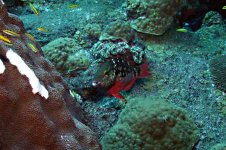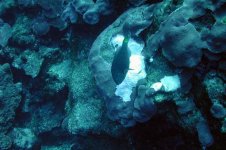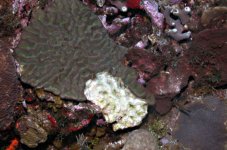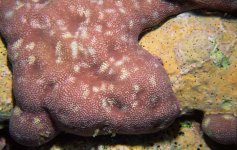clarionreef
Advanced Reefer
- Location
- San Francisco
As a spearfiherman for many years I would like to add that the best time to nail a big parrotfish is when he's crunching merrily away on live coralheads.
Parrots have good white fillets and never go to waste. If they wouldn't become so engrossed in their incessant 'fragging' of live coral then they would be harder to hit.
Steve
PS. When speared...they poop a stream of...white sand....which later becomes 'live sand'.
"eat dead corals"????
Wayne, do you know where you are posting...and who your audience is?
Parrots have good white fillets and never go to waste. If they wouldn't become so engrossed in their incessant 'fragging' of live coral then they would be harder to hit.
Steve
PS. When speared...they poop a stream of...white sand....which later becomes 'live sand'.
"eat dead corals"????
Wayne, do you know where you are posting...and who your audience is?









